
Is fresh Ontario-grown food on your plate this fall? Whether you’re celebrating the harvest or just enjoying seasonal produce, chances are you’re sampling the results of research and innovation coming from the Ontario Agri-Food Innovation Alliance.
For more than 150 years, the Government of Ontario and U of G have worked together for the benefit of the province’s food producers and processors. The collaboration, known as the Ontario Agri-Food Innovation Alliance, supports farmers so you can bring home healthy local food to your family.
Here are the top 10 foods fit for a feast that have been improved by U of G scientists with support from the Alliance.
- Turkey
Between October and December each year, Canadians purchase nearly five million turkeys. Research supported by the Alliance helps turkey breeders and producers balance animal health with efficient production so you can celebrate with this special tradition. Read the latest on the impact of lighting in egg production [1]. - Carrots
It’s true what they say about having colour in your diet – it’s better for you! Purple, yellow and orange carrots get some of their colour from compounds that help fight cancer and diabetes. Half of all carrots grown in Ontario are grown in the Holland Marsh. Research conducted nearby at the Ontario Crops Research Centre in Bradford [2], which is one site in the provincial network owned by Agricultural Research and Innovation Ontario and operated by U of G, means that carrots can be grown locally by Ontario farmers.
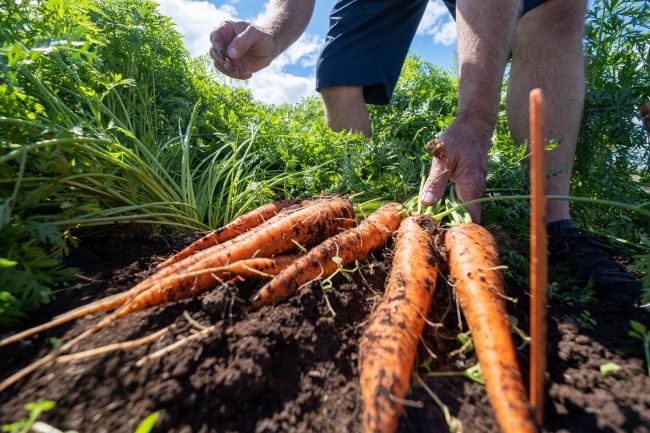
- Ham
Research that helps farmers raise healthy pigs with healthy piglets is under way at the Ontario Swine Research Centre in Elora, which opened in 2023. This forward-looking facility enables researchers to study nutrition and conduct environmental and reproduction studies. Learn more about this new facility [3]. - Potatoes
The beloved Yukon Gold potato was created at U of G in 1966 and reached Canadian growers in 1981. Known for its smooth skin, pink eyes, deep yellow flesh and rich taste, this potato will win you over in this mashed potatoes recipe [4].
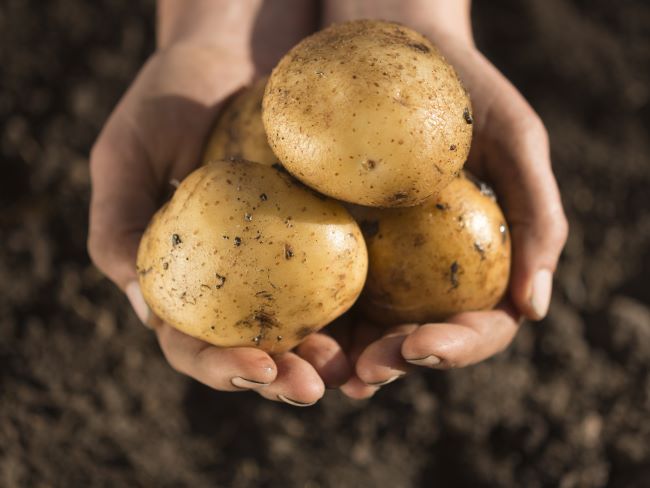
- Wine
The growth of the Ontario wine sector depends partly on grapevines’ ability to withstand changing climate – in particular, the more unpredictable deep freezes that challenge the vines’ ability to bounce back in the spring. U of G research at the Ontario Crops Research Centre– Simcoe aims to help growers minimize their losses [5] so you can find the perfect Chardonnay or Pinot Noir to accompany your meal. - Ontario craft cider
From finding yeasts that impart new flavours to analyzing cider economics to breeding Ontario’s first red-fleshed crabapple for cider production, Alliance-funded research is helping to grow the Ontario cider industry. A U of G researcher bred Ontario’s first red-fleshed crabapple for cider production at the Ontario Crops Research Centre – Simcoe. And if cider’s not to your taste, the same crabapple makes a delicious jelly [6] you can buy.
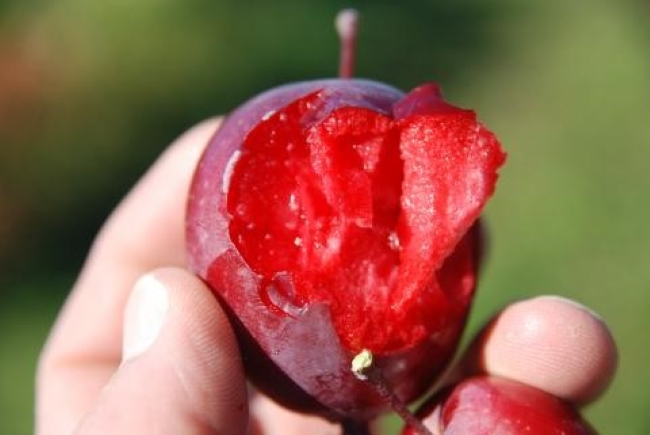
- Ice cream
Science à la mode! For over a century, U of G has run the Ice Cream Technology Short Course [7], the only course of its kind in Canada, which explores the ins and outs of ice cream production with manufacturers, suppliers and retailers. During one intense week, participants learn about ingredients, processing and features of ice cream so they can bring this frozen treat to you. - Apple pie
It’s as easy as Honeycrisp, Ambrosia or Northern Spy! Before they get wrapped up into a pie, these apple varieties were studied by U of G researchers, perhaps in the orchards at the Ontario Crops Research Centre – Simcoe.
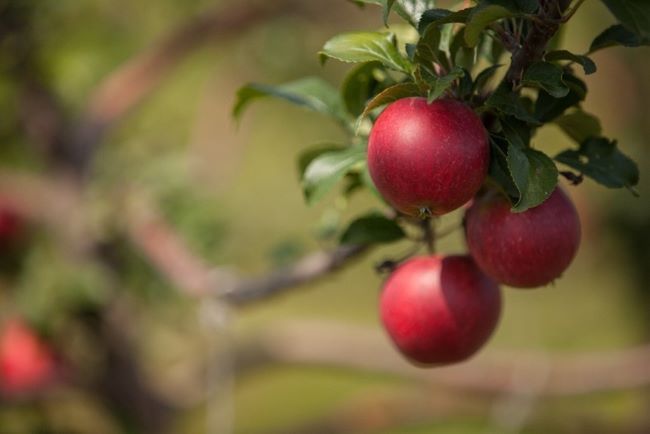 [8]
[8] - Charcuterie cheese board
Did you know that U of G’s Agriculture and Food Laboratory tests milk from all dairy farmers in the province? As part of the Government of Ontario’s regulatory program, the lab tests 42,000 samples per year so you can feel confident serving products made with Ontario cheese, butter and milk.
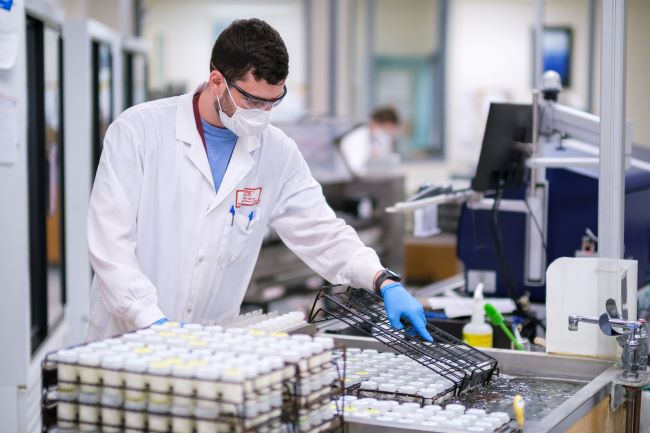
- Cranberry sauce
What do cranberries have in common with pumpkin, squash and apples? Besides being in season in October, they are all pollinated by bees! The University of Guelph’s Honey Bee Research Centre [9] teaches 700+ students per year about apiculture (beekeeping), a tradition started with the first beekeeping courses offered at the Ontario Agricultural College in 1894.





